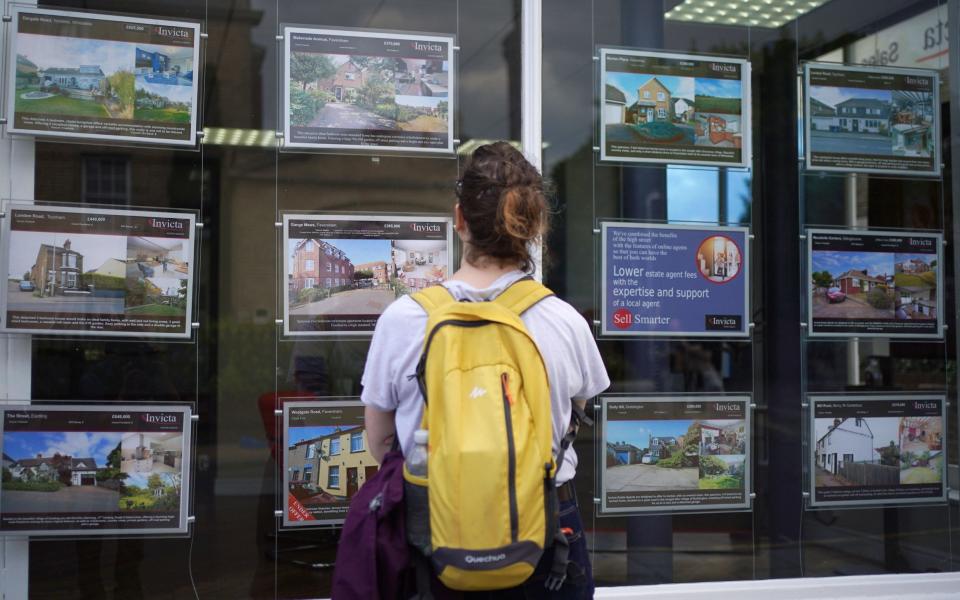Taxpayers to back 99pc mortgages for first-time buyers

Young people could get on the housing ladder with a deposit of less than £2,000 under a revamp of a government-backed scheme designed to help first-time buyers.
The Treasury is considering allowing families to put down a 1pc deposit to secure a property in a move that could potentially leave taxpayers on the hook for hundreds of millions of pounds.
Plans to introduce a scheme where families could take out a loan worth 99pc of a property’s value could be announced ahead of the Budget on March 6.
Whitehall sources have suggested that Mr Hunt has around £13bn of headroom to play with in the Budget, and are prepared to spend around £7bn of that on tax cuts.
It is understood that Jeremy Hunt, the Chancellor, has not yet signed-off the proposals as the Tories prepare a pre-election budget designed to woo voters.
Banking chiefs have already warned that allowing people to put down such small deposits could prompt concerns from regulators who are in the process of revamping capital buffer rules on residential mortgages.
Mike Regnier, the Santander UK chief executive, said last month that while he would be “very happy” to offer new buyers a 95pc mortgage, it would need assurances before backing the 99pc plan. Santander is Britain’s third biggest mortgage provider.
Taxpayers are already on the hook for up to £3.9bn under the existing mortgage guarantee scheme, according to the Treasury, which has supported just over 41,000 mortgages with a value of £7.8bn. Almost 90pc of purchases were made by first-time buyers.
The initiative supports banks and building societies that offer 95pc loans, meaning buyers only have to raise 5pc themselves on a house worth up to £600,000.
However, reducing the deposit required by a buyer would expose taxpayers to even more risk, particularly if a slump in house prices leaves thousands of families living in a property worth less than their mortgage – known as negative equity.
Just three high street banks, Barclays, Halifax and Lloyds offer loans under the current mortgage guarantee scheme, according to analysis by Moneyfacts, with just 18 of the 274 mortgages requiring just a 5pc deposit linked to the deal.
The average price of a house bought under the existing scheme is £176,000, suggesting that buyers could secure a home with a deposit of less than £2,000.
Mr Regnier said: “If the Government wants to push [to 99pc], something would need to be different than just 95pc mortgages being offered at 99pc. Any initiative to support first-time buyers we welcome, but it needs to come with the right protection and structure.”
Capital rules introduced next year require higher capital buffers for loans in excess of 90pc LTV. Even higher so-called risk weights would also apply to mortgages where no deposit is required, which could restrict lending to other parts of the economy.

 Yahoo Finance
Yahoo Finance 